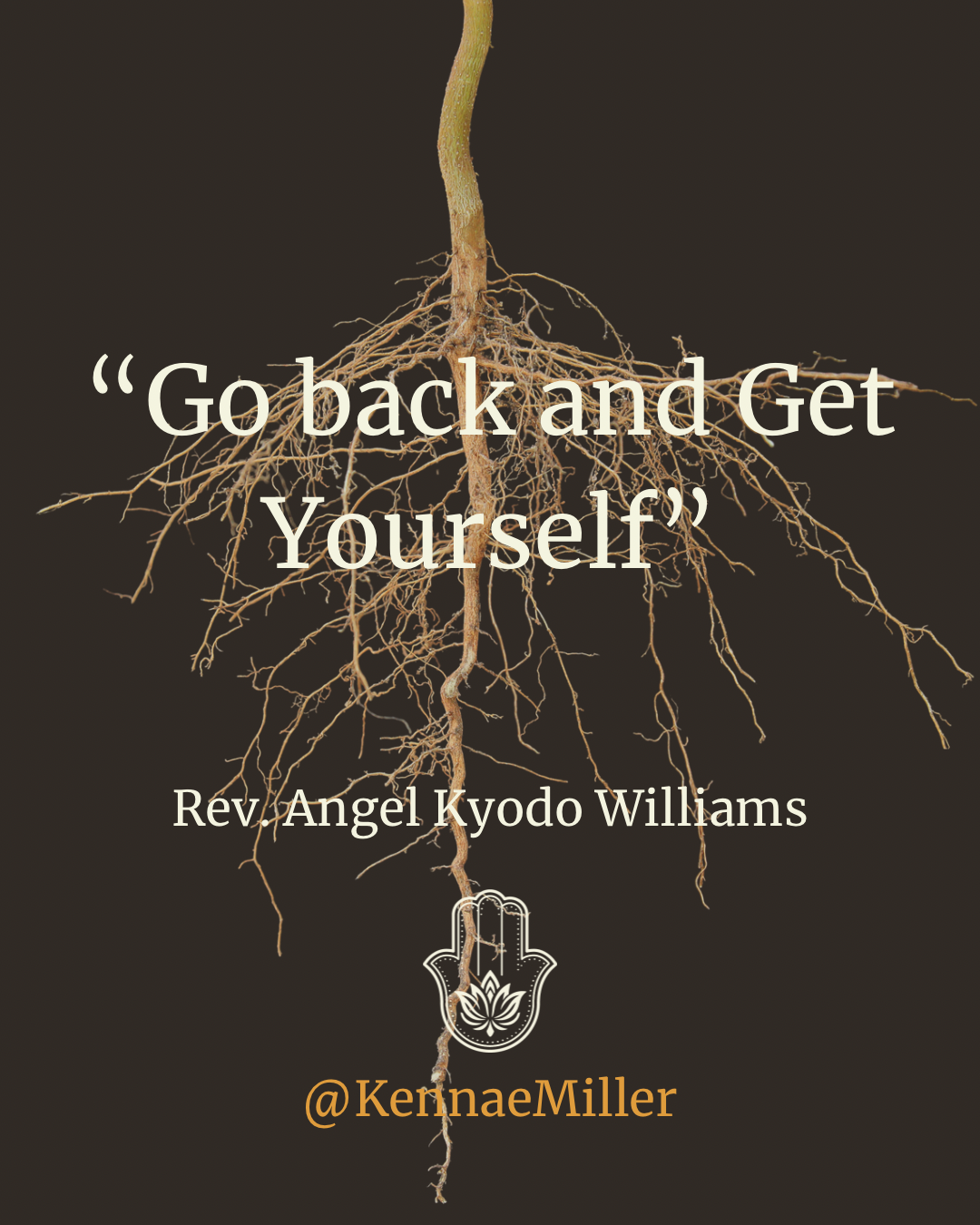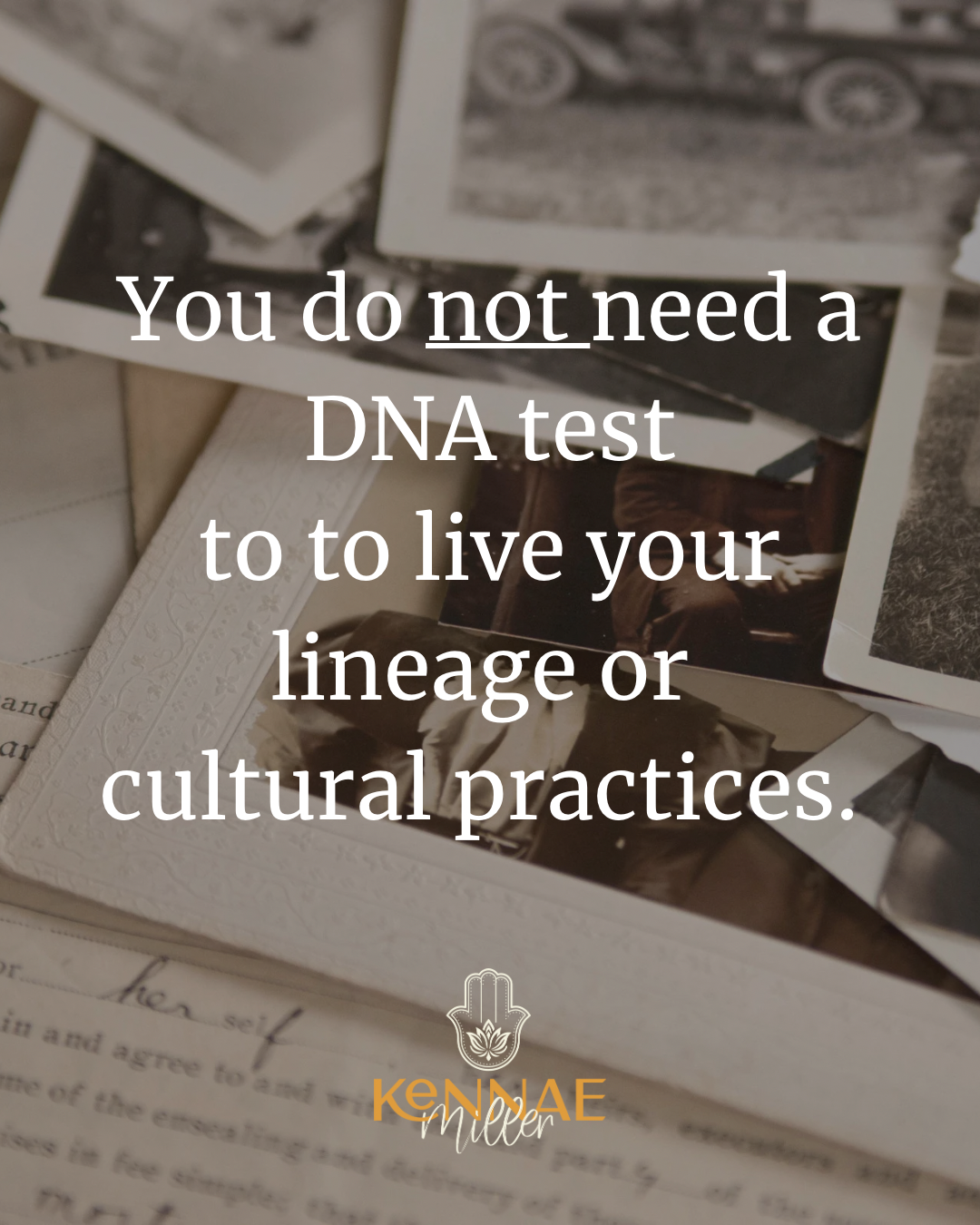Tracing Your Roots: Practices for Personal Liberation
Reading estimated 8 minutes | Playlist: Reconnecting to Your Roots
Disclaimer: This ritual in writing may include affiliate links, which means with a qualifying purchase I could receive a commission at no additional cost to you.
I was leading a class at my previous studio addressing cultural appropriation and I was encouraging the attendees to lean into their own culture and heritage instead of appropriating from others, even if they find it to be beautiful. One of the attendees made a statement in vulnerability, she shared that because she was white, she did not have a culture. All she knew to BE her culture has been whatever whiteness has assigned and indoctrinated her to believe about herself. She began to weep about the shame and guilt she had for belonging to the group of people who colonized the world.
In the movement for truth, healing and liberation, there is nothing people and communities that are and have been oppressed, underserved, exploited and under resourced can do with the shame or guilt that others feel. It often leads to a labor by those being harmed and oppressed to decenter themselves and their lived experience, to coddle or navigate the fragility, rage and anger felt by those dominant culture has assigned importance. We can look no further than the last 12 years since the Obama presidency for plenty of examples.
Dominant culture creates and fights to maintain the idea of individualism and exceptionalism. More recently we could look at the ways Caitlin Clark is praised as a blessing to women’s basketball at the expense of labeling a predominantly Black league that has been in existence for 28 years, aggressive, not wanting to give her credit, even jealous (yes, we are looking at you Shay Shay. Jake Paul former Disney star and content creator turned fighter??? being viewed as a boxer only after fighting older, retired, legacy professionals and let’s not forget his latest with Mike Tyson and ending it with his American exceptionalism speech.
One of the many ways dominant culture clings to centering itself is connected to a legacy and history of fundamental Christianity and offers the ‘American Dream’ as an exchange for erasure of one’s culture prior to coming to America. In the past this was a result of Manifest Destiny and the Doctrine of Discovery. Ancestor Toni Morrison, wrote about the ways white people are ‘erased’ as a result of whiteness and the American Dream in her book, The Origin of Others. This is why tracing our roots is liberating, we are able to rediscover our identity through our ancestral connections, return to our power of knowing where and who we come from while healing intergenerational wounds through lineage awareness and practices.
The Practice of Oral Histories
My invitation (and response to the attendee of the class) was a reminder that she does have a culture, she has to reconnect with it or in the words of Buddhist Monk and teacher, Rev. angel Kyodo Williams, “Go Back and Get Yourself”. If you have no idea where to start, how to reconnect, the best thing you can do is go sit at the feet of your elders (those in your family if possible). Ask them to tell you about their childhood, what was it like? What about the political climate, how did the family respond to sharecropping, Jim Crow, forced migration, Civil Rights and more? Did anyone serve in the military for this country and WHY? What foods did they remember eating, how did they gather them and what wisdom or medicine did those foods provide to them? All of these are ways to begin meaningful conversations with your elders, some may even begin to open up or share photos and memories, because they aren’t used to having anyone ask them their story. With their permission (consent is always a practice of decolonization), record their shares on video or voice recordings. This is how you begin to preserve family stories, tools, techniques, recipes and rituals.
Reclaiming Cultural Practices and Rituals
When I began carrying the torch forward the ways I witnessed my mother doing in connection and continuing the knowledge of our family trees, I began to find and explore traditions that grounded and empowered me. Practices, like rising before the sun for spiritual devotion, praying and using the King James bible for affirmation, cleaning rooms top to bottom and front to back sealing the room with a candle being lit or incense and even the practice of Christianity and rootwork. These are just some of the practices I witnessed my mother doing, heard her share witnessing her uncle or grandmother doing and help me begin my days with intention so I am grounded as I navigate motherhood, homeschooling and being a wife while remaining whole of myself.
I also want to share the wisdom one of my elders (thanks Dad) shared with me. Often as young people or younger generations, we are excited and let our excitement and desire to KNOW, drive us to push and dig into moments or traumas that are not pleasant for our ancestors or elders. It is very important that we honor our elders with offerings and compassion as we ask questions about parts of their lives they may have worked hard to forget or remove themselves from. There may be some elders unwilling to share anything with you, don’t let this discourage you because there are either other family members, family oral histories or public records that can help you still tie the pictures of lineage together. Those same stories you hear Unc tell at the family cookout might have more roots and truth to it than you think.
Genealogy and the Search for Ancestral Lands
For many people ESPECIALLY those of us in the diaspora, we have been sold the myth that we will never know or be able to trace our ancestral lineage because of enslavement and the way many of our ancestors were shifted and sold. This does make tracing our roots difficult but NOT impossible, as we know human traffickers of the time (slave owners) often kept meticulous records because it demonstrated their wealth and prestige to others. Many states have libraries with public records you can look up from property records, to birth records and church records. In the diaspora so many of our records were kept in connection to the church whether a birth, baptism, burial or death record. Whenever I am researching records of my lineages I use databases like Find A Grave and Archives, to locate graves of ancestors.This is how I was able to locate my husband's paternal grandfather, although he died months after my husbands father was born.
Then there’s the record of DNA. Real quick on DNA, I personally have done 2 different ancestry tests and my reasoning for this was because (as a Veteran) the U.S. Government already has my DNA on record (so I wasn’t concerned about it being sold to them (looking at you 23 and Me). I choose to do African Ancestry (they vow to not sell your DNA and destroy the sample after submitted) and their unique capability to trace you not only back to the land but more specifically your ethnic group or tribe. I did Ancestry’s DNA because I have family members on both sides of my lineage that have completed tests and I wanted to see if it would accurately display our traits and a broader understanding of our genetic makeup. This is not an endorsement nor ad to support either of these companies, just my experience.
Last thoughts on DNA, I personally do not believe I or anyone in the diaspora should have to pay for these resources to find out where their lineage was stolen from. These tests also are not accessible price wise so I understand the reason many of us do not go this route and or have a distrust in sharing our DNA with systems and companies outside of our control. You DO NOT NEED A DNA TEST to live your lineage or cultural practices. Will it feel good or affirming to validate your experience, maybe? Will it automatically grant you dual citizenship in another country, maybe not? But the wisdom of your elders and ancestry will always present itself as wisdom coming through your daily life, even if you cannot explain it, the how or the why. AND as a people recovering from needing the validation of dominant culture to believe and exist in the ways we do, our DNA knows even what we may not understand. That can be enough.
Personal Impact of Tracing Your Roots
If you’ve attended any of my classes or workshops, you know I share how I grew up in the Christian (Black) church. Even as a PK (preachers kid, my mother being an Evangelist and my father being a minister), we were taught and instructed to stay away from anything that could remotely appear demonic or like witchcraft (growing up this meant anime, Sailor Moon, Pokemon and even Animorphs). Yet, I was supported by my mother and even encouraged to practice yoga as a high school student, wear bracelets of different bead colors because they were for healing and engage in ritual even if it were by another name.
When I received my African Ancestry results back for my maternal lineage, I was shocked because it told me my maternal lineage was NOT Cherokee like I was led to believe and it wasn’t African DNA at all, it was Dravidian/Tamil Nadu (this is what I mean, you cannot hide from your DNA whether tested or not). As I studied and researched further the history and origins of the Dravidians/Tamil Nadu people, I learned they are from South India, Sri Lanka and Malaysia. My maternal lineage was more likely Hindu and lived yogic lifestyles. For me, this only affirmed why so many things my mother did and said in my upbringing were a part of our lineage. It was empowering to realize I felt so aligned with yoga and its philosophies along with many ideas in Hinduism and Buddhism, because they are of my lineage.
Taking the First Step On Your Journey
Dividing into your ancestry is not always an easy task but it is one many are journeying whether to heal, decolonize themselves and their lives or teach the next generations about who we are. In yoga philosophy this is why sangha’s (communities) are created, so we are not alone as we walk our journeys to return to who we are and contribute toward our collective freedom. Audre Lorde said it like this, we cannot heal alone, healing must be done in community. There are times of hardship, even moments of doubt that can exist when beginning this path and having a supportive community to walk alongside you can remind you of your power and what you are doing this for. This is why I created the Lineage Keeper program (specifically for Black women and femmes) to have and share within a community how we are navigating the important role of being a caregiver, provider, nurturer of the household and next generation. Our next virtual (only) gathering is in January on 30 at 6:30pm ET.




